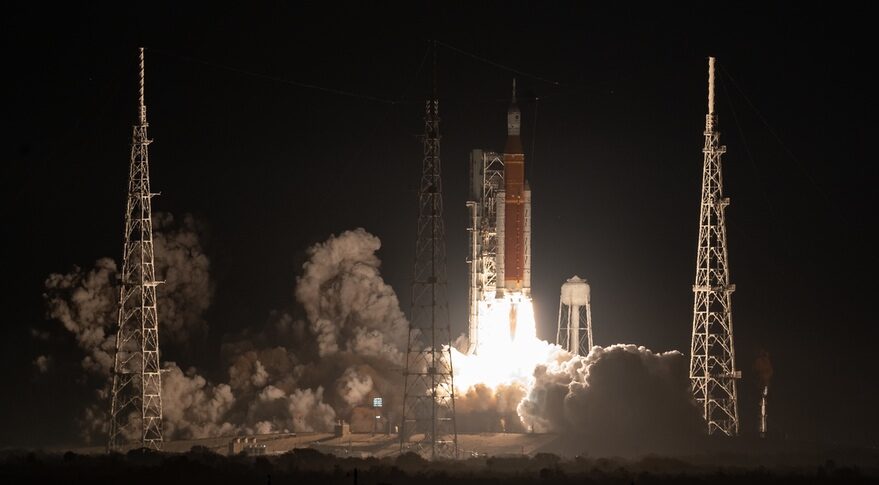
WASHINGTON — The inaugural flight of the Space Launch System won positive reactions from the White House and Congress, celebrating the successful liftoff while overlooking the vehicle’s extensive delays.
While there was no formal White House statement after the Nov. 16 launch of the SLS on the Artemis 1 uncrewed mission, both President Joe Biden and Vice President Kamala Harris tweeted congratulatory remarks about the launch.
“This ship will enable the first woman and first person of color to set foot on the lunar surface and will lead countless students to become explorers and show America’s limitless possibilities to the world,” Biden tweeted, referencing the overall Artemis program.
“Congratulations to NASA and our private sector and international partners on the launch of Artemis I,” tweeted Harris, whose responsibilities include chairing the National Space Council. “Today, America is charting a path back to the Moon. This is a landmark moment for our nation and our world.”
At a press conference a few hours after liftoff, NASA Administrator Bill Nelson said he not spoken with Biden, noting that the president was in Indonesia wrapping up the G20 summit there. “I would not be surprised that, since it was daytime over there,” he said, “if, in whatever meeting he was in, his assistants took a TV to him and showed him the launch.”
Nelson later tweeted that the president called him later in the morning “to express his thanks for missions that unite Americans behind our nation’s can-do spirit. Like millions around the globe, he tuned in to launch and I’m thankful for his leadership.”
The launch also got a warm reception by leaders of congressional committees with oversight of NASA. “Thanks to the hard work of everyone at NASA and their partners, we are one step closer to achieving our goal of returning American astronauts to the Moon,” said Rep. Eddie Bernice Johnson (D-Texas) in a statement. “As Chairwoman of the Committee on Science, Space, and Technology, I have been a steadfast supporter of our human space exploration program, and I look forward to our nation’s return to the Moon in preparation for future human missions to Mars.”
“The Artemis program has been a high priority for the Science Committee, and I’m so proud to see it come to fruition,” said Rep. Frank Lucas (R-Okla.), ranking member of the committee and in line to chair it in the next Congress after Republicans won control of the House in November’s midterm elections. His comments came in the same statement as Johnson’s. “Artemis I is the start of the next era of human space exploration.”
Similar comments came from the leadership of the Senate Commerce Committee. “This flight test of the Space Launch System rocket, the most powerful in the world, and the Orion spacecraft will demonstrate its groundbreaking abilities during its mission around the Moon,” said Sen. Roger Wicker (R-Miss.), ranking member of the committee, who noted the Stennis Space Center in his state hosted SLS engine tests. “The hard-working Mississippians at Stennis Space Center will forever hold a significant role in this incredible moment in history.”
Sen. Maria Cantwell (D-Wash.), chair of the committee, also played up the local angle in the launch. “It also shows that Washington state remains an aerospace industry leader, with workers at 42 companies from seven different counties contributing components for the Artemis missions,” she said in a statement.
However, the praise of the launch rarely, if ever, mentioned the challenges the Artemis program has faced, including extensive delays in the development of the SLS. The vehicle was originally intended to make its first flight by the end of 2016, according to direction given to NASA in a 2010 authorization act.
One of the key figures who drafted that bill was Nelson, at the time a Florida senator. Asked about that at the post-launch conference, he said that one of the first things he did after the launch was to text another former senator, Kay Bailey Hutchison, who in 2010 had worked with Nelson to draft the authorization act, to commemorate the success.
He added he also planned to congratulate two former Obama administration officials, Rob Nabors and Jack Lew, who negotiated the contents of that authorization bill as a compromise between the administration’s original plans to cancel the Constellation program and congressional efforts to preserve it, “as soon as I can get their addresses.”
“This is really a gratifying time,” he said, “but it’s only going to get better.”